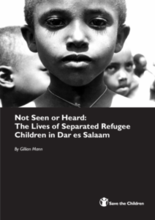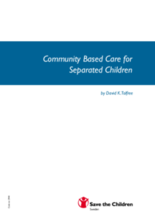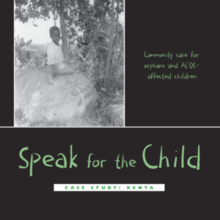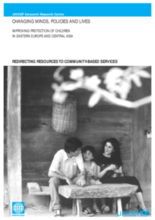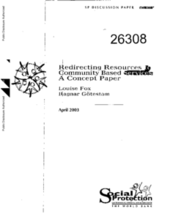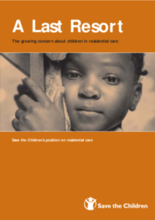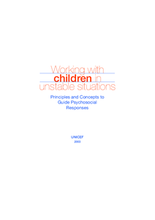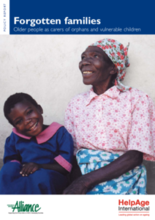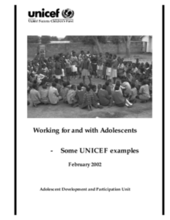Displaying 291 - 300 of 312
A study on the lives of separated refugee children in Dar es Salaam. The study highlights their experiences of abuse and discrimination, and their negative perception of refugee camps.
A paper discussing the shortcomings of systems in which separated children are placed into residential/ institutional forms of care. It also considers community-based and some other forms of care as alternative approaches to preventing unnecessary separation of children from their families.
A case study of a pilot project in western Kenya focused on community-based orphan care and support. Includes a description of the project activities, including community mobilization and needs assessment, as well as lessons learned and suggestions for improvement.
Provides an overview of social service provision in Eastern Europe and Central Asia, and provides information on ways to move resources away from institutional care, and into community-based social services. Contains specific examples from Latvia, Iceland, Sweden, Romania and other transitioning countries.
A paper in a series of papers that discusses the problems associated with changing social protection services and provides guidelines to aid countries restructure their financing systems for social care. The paper proposes more family-based and inclusive care programs and less institutional care.
This paper outlines the International Save the Children Alliance’s position on residential care. It addresses the proliferation of residential care, its negative impact on children and the need for international attention. The paper presents the work of Save the Children and other agencies in order to highlight relevent issues and to provide a guide for those working with separated children.
Discusses the psychosocial impacts of unstable situations on children and their families, with an emphasis on child development. Includes UNICEF’s position on policy and programming principles as well as strategies to address the psychosocial needs of children, families, and communities.
A publication by International AIDS Alliance and HelpAge International provides an overview of the issues identified by older people and orphans and vulnerable children themselves; examples of community-based programs that are improving the lives of older people and orphans and vulnerable children; recommendations that will help to prioritize orphans and their carers within HIV/AIDS and wider development policies, programs and research.
A research study which explores the overt and covert abuse and neglect experienced by children, especially by those who work and/or live on the streets, in three Nigerian towns. Includes a brief discussion of the African Network on Prevention and Protection against Child Abuse and Neglect (ANPPCAN) in Nigeria.
Compiled case descriptions from a diverse set of programs that work with and for adolescents. Analysis emphasizes common challenges and lessons learned for strategic planning.

